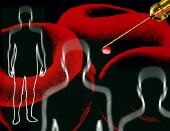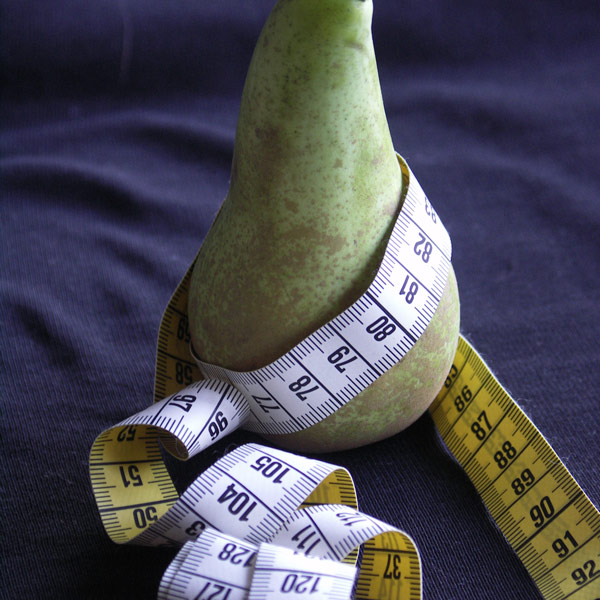
MONDAY, Aug. 9 (HealthDay News) — People who put on even a little weight around their middle hinder the function of cells that line their blood vessels, increasing the risk for high blood pressure and other problems, a new study finds.
These cells, called endothelial cells, are vital for proper functioning of blood vessels. They control the ability of the vessel to contract and dilate, which in turn controls blood flow. Damage to the endothelium can lead to the vessel not functioning properly and eventually high blood pressure and blood vessel disease, the researchers noted.
And “when people put on a modest amount of weight, if the fat is in the belly, those people tended to have a greater impairment of endothelial function,” said lead researcher Dr. Virend K. Somers, a professor of medicine at the Mayo Clinic School of Medicine. “Endothelial function is a marker of health of the blood vessel.”
“There is something about fat deposited in the belly that makes it potentially hazardous to health, because impaired endothelial function has been linked to increased risk of high blood pressure and blood vessel disease,” Somers said.
The report is published in the Aug. 17 issue of the Journal of the American College of Cardiology.
For the study, Somers’ team randomly assigned 43 normal-weight adults to either gain about nine pounds or keep their current weight.
The researchers measured endothelial function in the brachial artery, which is located in the arm. Specifically, they looked for the ability of the artery to dilate.
Measurements were taken before the study started, after eight weeks of weight gain and again after 16 weeks of weight loss.
People who gained weight showed a decrease in the ability of the artery to dilate, the researchers found.
However, when they shed the weight again, the ability of the brachial artery to dilate properly snapped back to normal.
People tend to ignore minor weight gain, such as the few pounds they can put on over the holidays, Somers said. “It’s only 10 pounds, and that’s not much, but even this modest amount of weight gain has potentially harmful effects for blood vessels,” he said.
Dr. Gregg C. Fonarow, director of the Ahmanson-UCLA Cardiomyopathy Center at the University of California, said that “increased body fat has been linked to both premature cardiovascular disease and endothelial dysfunction.”
This study nicely demonstrates that weight gain and increases in abdominal fat are directly contributing to endothelial dysfunction, he said. “Further, this endothelial dysfunction is entirely reversible after the excess weight and abdominal fat is lost through diet. This is yet another reason to maintain a healthy weight and avoid excess belly fat,” Fonarow said.
More information
For more information on risks for high blood pressure, visit the American Heart Association.

